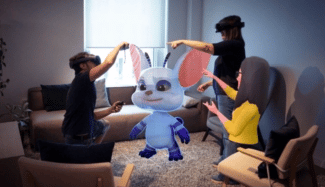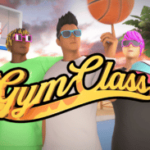Meta Quest headsets are getting support for colocation.
Colocation means having multiple headsets sharing the same physical play space with the same virtual coordinate space. Facebook showed off an “arena scale” prototype of this in late 2018, but no further development was shown since then.
HTC’s Vive Focus 3 has supported location since last year, and it’s already being used in VR arcades.
Colocation should be particularly useful for mixed reality apps, so that everyone sees the same virtual objects at the same position in the room.
Based on the description of the technology, it likely works similarly to the colocation features already present in Apple’s ARKit and Google’s ARCore. Inside-out tracking generates a point cloud of static features in the room. Algorithms find shared unique patterns in the point clouds of multiple devices and use them to align the virtual spaces. The process requires no external sensors, base stations, or specific markers.
To be clear, this is a developer-side feature that will require apps to specifically support it. It’s called Shared Spatial Anchors, an extension of the existing Spatial Anchors feature that lets you place virtual content in a specific position in your room so it stays there the next time you use the app.





